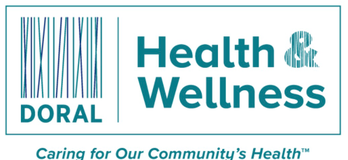Vitamin A

Do you have difficulty seeing at night? If yes, chances are your body developing a deficiency of Vitamin A which is not good because after a while you develop permanent vision problems and other severe complications. And if you think consuming more vitamin A is the answer…… Well, the answer is no. Because excessive vitamin A is harmful to health too. You should be consuming the right amount of vitamin A- not more, not less.
So, how do you know what is the exact amount of vitamin A you need? Let’s help you with that. Keep reading and get all the answers to your questions.
Vitamin A is a fat-soluble micro-nutrient absorbed from food and stored in your liver. Its chemical names are Retinol and Retinoic acid. As a nutrient, it is important for vision, growth (cell production and division), immunity, and reproduction. It is an antioxidant that protects your cells when the body produces free radicals -by the breakdown of the food or when you get exposed to tobacco, smoke, or radiation.
Functions
Vitamin A helps in:
- The formation and maintenance of body parts such as teeth, skeleton, tissues, mucus membranes, and skin.
- Production of the pigment of the retina for your eyes, which helps to see clearly in low light.
- The beta-carotene form of vitamin A is an antioxidant, which helps to protect cells from damage from substances called free radicals.
- Building the immune system by growing and distributing the T cells (a type of white blood cell) that help to protect you from infections.
- Vitamin A helps with cell growth, male and female reproductive health, and fetal development.
Sources and RDA (Recommended Dietary Allowance)
There are 2 types of vitamin A found in food sources.
The first is pre-formed vitamin A (retinol and retinyl esters) which is found in foods such as:
- Meat
- Fish
- Poultry
- Eggs
- Dairy foods such as cheese, butter, etc.
The second is provitamin A (carotenoids) which is found in plant-based foods such as:
- Sweet potato
- Dark green leafy vegetables
- Carrots
- Mangoes
- Pink grapefruit
The most common type of provitamin A that we consume is beta-carotene, which is converted into vitamin A by our body to use as a nutrient.
The recommended dietary allowances (RDA) for vitamin A intake:
For infants
- 0 to 6 months: 400 micrograms per day
- 7 to 12 months: 500 micrograms per day
For Children
- 1 to 3 years old: 300 micrograms per day
- 4 to 8 years old: 400 micrograms per day
- 9 to 13 years old: 600 micrograms per day
Teenagers and Adults
- Males: 14 or older: 900 micrograms per day
- Females: 14 or older: 700 micrograms per day. (For females 19 to 50: 770 micrograms per day during pregnancy or breastfeeding 1300 micrograms per day.)
Deficiency
If you have Vitamin A deficiency, you might develop:
- Night blindness
- Corneal damage
- Increased risk of infections (like measles and diarrhea)
- Increased risk of Anemia and death of pregnant women and leads to slow growth and development of the infants.
- Skin issues such as acne and hyperkeratosis.
Want to know what diet to follow to avoid vitamin A deficiency?
Call us on 1-347-384-5690 to get a free consultation from a certified dietician.
Hypervitaminosis A
If you consume too much vitamin A you might develop hypervitaminosis A (or in other words Vitamin A toxicity). It can be acute or chronic (based on how long you have been consuming more vitamin A than required).
Acute hypervitaminosis A happens when you consume a higher dose of vitamin A than the recommended dose over a brief period. The side effects you can notice may include:
- Nausea
- Vertigo
- Blurred vision
- Vomiting
Chronic hypervitaminosis A happens when you consume 10 times the dose of vitamin A than the recommended dose over a longer period. Side-effects include:
- Vision problems
- Joint and bone pain
- Nausea
- Vomiting
- Hair loss
- Headache
- Skin irritation
- Dry skin
- Liver damage
- Jaundice
- Delay in growth
- Confusion
Vitamin A is a fat-soluble vitamin that helps in many functions of the body. But remember, you should consume vitamins as per the recommendation of RDA. Overconsumption and less consumption may lead to many health problems.
Call us and get an appointment with our highly experienced nutritionists and dieticians, who have helped thousands of people maintain good nutrition and health. See the best results in just a few weeks! Call us on 1-347-384-5690 to get a consultation. And if you’re in need of dietary advice, get a consultation, or walk in for an appointment at 1797 Pitkin Avenue, Brooklyn, New York 11212. You can also visit our website to book an appointment online at https://doralhw.org or contact us at info@doralhw.org if you have any queries.


